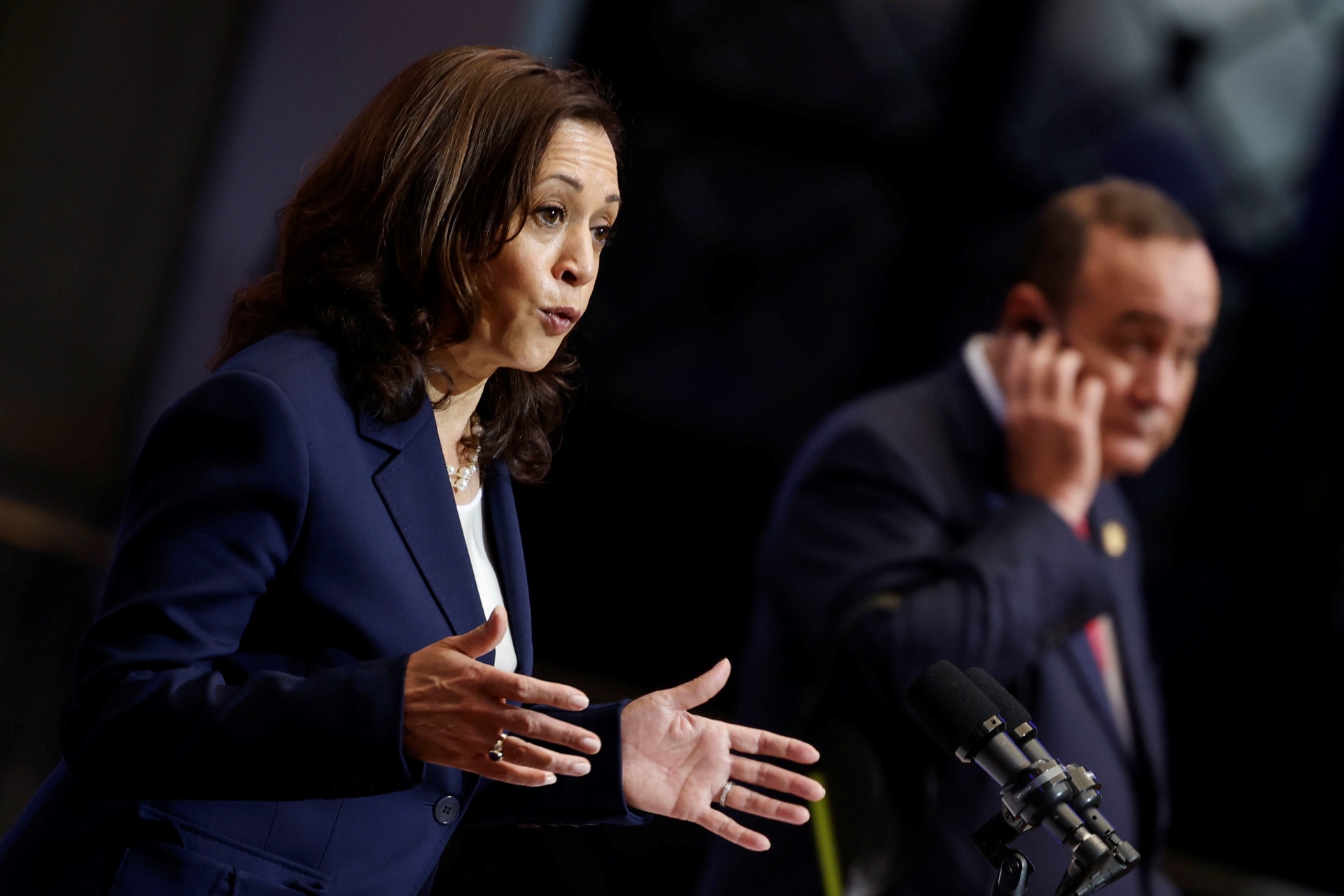The Fight Against Corruption in Central America Needs to Get Ugly
When the region’s governments are such problematic partners, going around and after them is the only solution.
Originally published at Bloomberg Opinion

By experts and staff
- Published
Experts
![]() By Shannon K. O'NeilSenior Vice President of Studies and Maurice R. Greenberg Chair
By Shannon K. O'NeilSenior Vice President of Studies and Maurice R. Greenberg Chair
Honduras’s president is accused of stealing money from government coffers and taking bribes from narco-traffickers. Guatemala’s head is known for handing out government contracts to family friends. El Salvador’s president has shut down the country’s internationally funded anti-corruption agency and expanded politicians’ immunity from prosecution.
“Rooting out” corruption in Central America is the key to restoring hope and opportunity in the region and persuading its citizens to stay home, says the Biden administration. Yet to truly change things, it needs to take on not just the symptoms but the political and economic systems that force hundreds of thousands to leave their homelands. This thorny task means confronting the U.S.’s ostensible partners, the region’s governments, who are more of a problem than a solution.
From constant small bribes to mammoth public fraud, corruption runs deep in Central America. None of the Northern Triangle countries of El Salvador, Guatemala or Honduras breaks into the top 100 in Transparency International’s Corruption Perceptions Index. Corruption in these countries takes a huge economic toll: The region loses $13 billion, or more than 5% of gross domestic product, every year.
Like their leaders, Central America’s economic elites aren’t keen to clean things up. Government favor has made many very wealthy, and the burden of taxation is low and easily evaded: Tax revenue in all three Northern Triangle countries falls below the 2019 average of 22.9% of GDP in Latin America and the Caribbean; by that yardstick, Guatemala has the region’s lowest tax revenues, a paltry 13.1%. In the place of taxes, migration-fueled remittances, which reach some 20% of GDP in El Salvador and Honduras, take care of many basic needs.
So what can the U.S. government do? To start, it can ensure that its foreign assistance doesn’t fall into dirty hands. We know what works. A broad mix of economic development, violence prevention and youth-focused programs has shown promise in changing the day-to-day realities on the ground and the calculations of would-be migrants. But the money has to go to the people and communities at risk, not the bank accounts of grasping political officials. As much as possible, U.S. funds should go directly to NGOs, civil society groups, and parts of the private sector that will use it transparently.
Second, the U.S. needs to step up efforts to dismantle the corrupt systems themselves. This means funding international anti-corruption investigatory bodies with a proven record of bringing real change, and which the Northern Triangle’s governments have repeatedly sought to undermine. The U.S. should help create much needed watchdogs — requiring, for instance, that governments or organizations hire technical advisors and empower inspector generals in ministries that do receive U.S. money.
The reach of U.S. law is long. Past time to use it in Central America, leveraging domestic legal tools and courts to ensure justice is served. So much of Central America’s ill-gotten gains flow through the U.S. financial system or are enjoyed on U.S. soil as perpetrators take vacations, buy homes or educate their children. They should find no such harbor here. Their visas should be cancelled, and they should be sanctioned. The promulgation of lists of Northern Triangle officials suspected of corruption — the so-called “Engel lists,” after their legislative sponsor, former Congressman Eliot Engel — should be stepped up and leveraged for diplomatic pressure. The U.S. Treasury Department’s Financial Crimes Enforcement Network, FinCen, should turn its tracking expertise to Central America’s illicit networks. The Department of Justice should use its jurisdiction through the Foreign Corrupt Practices Act, the Kleptocracy Asset Recovery Initiative, and other tools to build and prosecute cases.
To be sure, past U.S. interventions in Central America have had a dark side. And some in Congress have questioned whether this administration’s plans won’t end up wasting more taxpayer money. Yet these stepped-up actions won’t be on the side of repressive governments and corrupt elites. Instead, they have the potential to harness U.S. economic and legal might to support the millions of citizens who want their homelands to be freer, fairer and more prosperous. Their desire for change is so strong that tens of thousands have repeatedly taken to the streets, despite the perils that can come with speaking out. The U.S. needs to intervene forcefully on the right side of history. The added benefit? Fewer Central Americans will feel compelled to make a perilous journey north.
